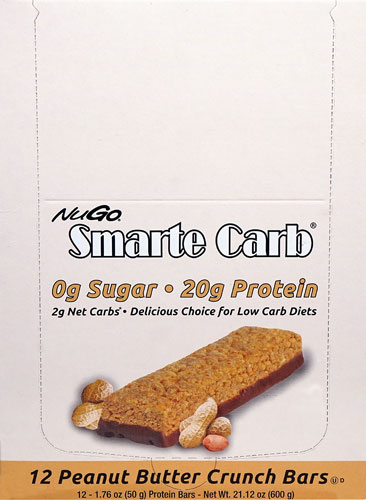We are inundated with so much content around nutrition these days. It’s hard to know who and what to believe, when stories about every diet out there—from Atkins to ketogenic to GOLO—are flooding your inbox, your social media feeds and your phone.
If you’re looking to find a trustworthy diet to reach your weight-loss goals, it’s key to do your homework, researching what a healthy eating plan looks like for your body and your lifestyle. While there’s no one-size-fits-all solution, there are some red flags to look out for when it comes to fad diets in general. The bottom line? If it sounds too good to be true, it probably is.
With that in mind, here are five reasons that following a fad diet is risky.
1. They’re too restrictive.
When you’re following a fad diet with extreme limitations, such as the lemon detox diet (which involves fasting and drinking a concoction of water, lemon juice and cayenne pepper), you’re opening up your body to a host of negative consequences.
“When we restrict carbs and/or fat, the body releases specific hormones to counter the restriction, promoting increased cravings of said macronutrients,” says Rachel Fine, RD, of To The Pointe Nutrition. This is because your body relies on both carbs and fat for very specific metabolic functions, and when you’re not consuming one or both of these macros, it will fight until you can no longer resist, she adds.
Besides majorly increasing your cravings, highly restrictive diets can adversely impact your daily life.
“Subsisting on only a fraction of the calories your body needs each day can lead to feelings of lethargy and fatigue,” says Candice Seti, a licensed clinical psychologist, certified nutrition coach and weight-management specialist.
Plus, you’ll be less likely to stick to an exercise plan when you’re low on energy, and miss out on the cardiovascular, muscle-building and weight-loss benefits that physical activity brings.
2. You could be missing out on essential nutrients.
A fad diet that removes one or more entire food groups will most likely result in calorie cutting as well. And while reducing calories with or without changing your physical activity will usually result in weight loss, it comes at an expense.
“If this diet instructs you to remove foods from your diet that are high in fiber and essential nutrients, you might lose weight, but you could end up with other complications, such as nutrient deficiencies and changes in your digestive, muscle, and bone health,” says Emma Laing, PhD, RDN, LD, director of dietetics at University of Georgia. “Keep in mind that you will still miss out on important nutrients even if you take dietary supplements.”
In addition to missing out on key nutrients, another adverse effect of fad diets is feeling dehydrated and sluggish because you are not drinking enough fluids or eating enough calories, says Laing. According to Dietary Guidelines for Americans, a report produced by the U.S Department of Health and Human Services and the U.S. Department of Agriculture, your typical eating pattern should focus on nutrient-dense foods, such as whole fruits and vegetables, whole grains, low-fat or non-fat dairy and lean proteins.
“Fad diets often challenge these recommendations by promising rapid weight loss,” adds Laing, “but the result is an unbalanced way of eating.”
3. They can be expensive.
If you’re following a diet that requires buying only premium ingredients, such as organic fruits and vegetables and grass-fed free-range beef, grocery bills are going to be steep. In addition, many fad diets, such as GOLO, recommend the use of expensive supplements to go along with the diet—and they aren’t necessarily backed up by science.
“Supplements are not only costly, but also largely unproven and possibly risky,” says Seti. “Unless your goal is a lighter wallet, avoid the use of risky supplements of any kind.”
4. They’re not sustainable.
In most cases, fad diets are not going to be successful in the long-term for your mental and physical health. A parallel goal for many people trying to lose weight is developing a positive relationship with food—and constantly having to think about what your next meal will be, or what you can’t eat, isn’t going to get you there.
“If you find that your ability to enjoy travel or social activities involving food is suffering, chances are, this diet will not be sustainable,” says Laing.
5. They could actually cause weight gain.
Ironically, one of the more common side effects of fad diets is often weight gain. “This is because most of the weight loss from fad diets is typically due to simple water loss,” says Seti. “Once you begin to eat normally again, the pounds pile back on, often in amounts greater than your original weight.”
An even scarier side effect: The extreme nature of fad diets can cause your metabolism to slow, says Seti. When this occurs, your body believes itself to be in state of starvation and attempts to hang on to every calorie in a survival attempt.
Tips for choosing a trustworthy diet
“For anyone who’s trying to lose weight or get healthy, it’s important to overlay some common sense in the process,” says Samantha Cassetty, RD, director of nutrition at The Healthy Mommy. While it can feel overwhelming to know what to eat, when and how much, sticking to the core principles outlined in Dietary Guidelines for Americans is a great place to start.
Rather than following a fad diet, or trying multiple fad diets that cause you to lose and gain the same pounds over and over again, aim to consistently follow a healthy eating pattern at an appropriate calorie level. Focus on variety and nutrient density, and be mindful of portions. Limit added sugars, watch saturated fats and reduce your sodium impact, and you’ll be on your way to an overall healthier lifestyle.
There’s no quick fix for sustainable weight loss, but healthy modifications do add up. “Anytime you’re making lifestyle modifications and doing something better than you were before,” says Cassetty, “you will likely feel better and lose weight.”




